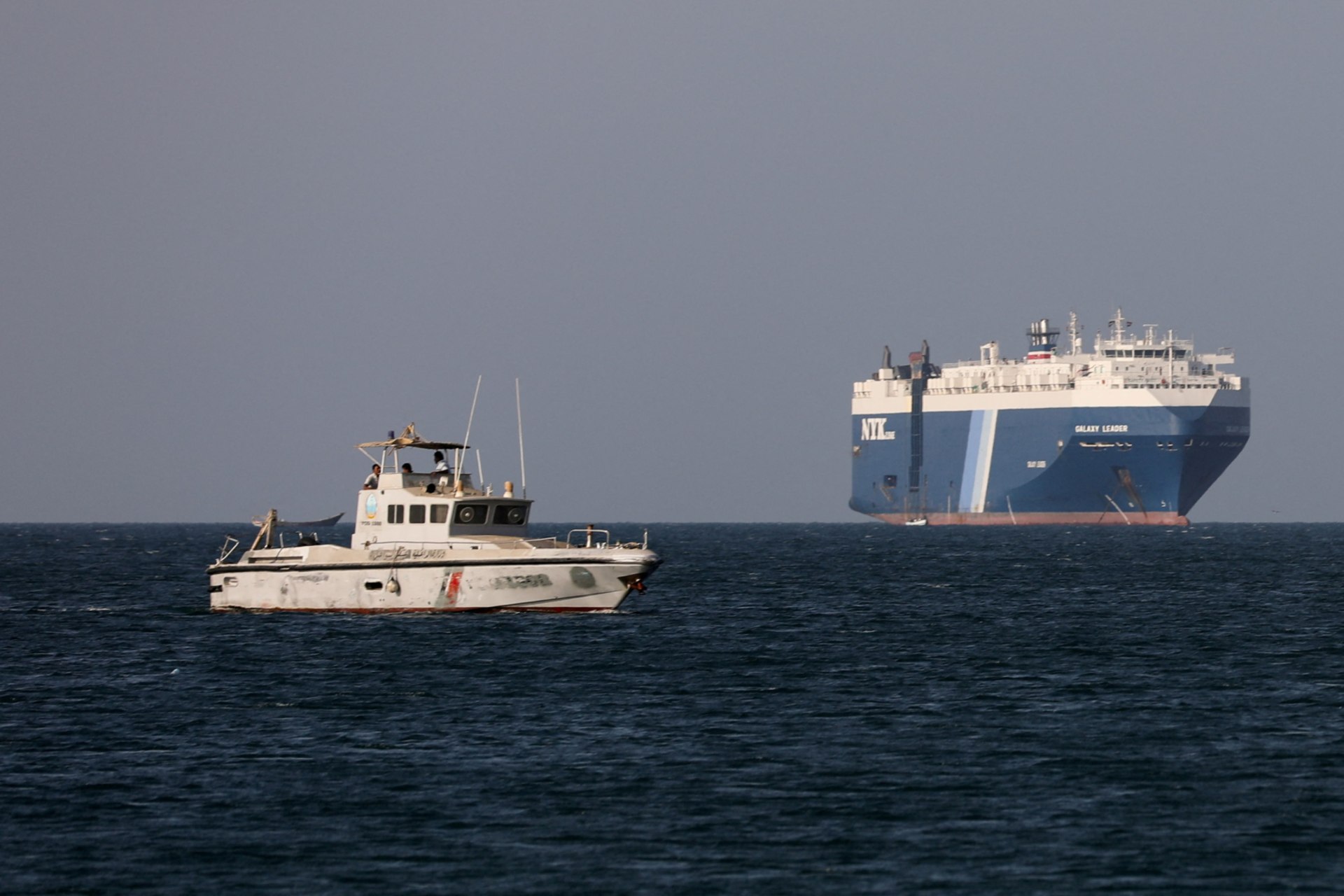The President’s Inbox Recap: The Houthi Threat to Red Sea Shipping
Attacks on commercial vessels transiting the Red Sea pose significant challenges for the global economy.

The latest episode of The President’s Inbox is live! This week, Jim sat down with Katherine Zimmerman, a fellow at the American Enterprise Institute. They discussed the political and economic consequences of the attacks on commercial shipping in the Red Sea by Houthi militants. The Houthi movement, which is officially known as Ansar Allah, is a Zaydi Shiite group backed by Iran that is at war with Yemen’s Sunni-majority government. Jim and Katherine recorded the episode before the first wave of U.S.-led strikes last Thursday on Houthi targets in Yemen.
Here are five highlights from their conversation:
1.) Disruption of global shipping harms U.S. interests. “If you look at U.S. national security interests, it has to do with freedom of the seas and free trade,” Katherine argued. “And someone pointed out that we lost the Suez Canal during the Suez War, and that was fine. Fifty years later, things are different.” In today’s globalized economy, some 15 percent of the world’s commerce passes through the waterway every year. Disrupting that movement of goods threatens to disrupt the global economy.
2.) Houthi militants are firing on commercial shipping vessels transiting the Red Sea as a way of getting back at Israel and Israel’s allies. Houthi leaders recognize that passage through the Red Sea, and especially the Bab-el-Mandel that links the Red Sea to the Gulf of Aden, gives them powerful leverage to express their solidarity with Hamas and the Palestinian cause. Shipping companies face two choices: pay higher insurance fees to transit through the Red Sea and risk an attack, or see profits squeezed by taking ten extra days and using lots more fuel to sail 4,000 additional miles around southern Africa.
3.) The Houthis are supported by Iran but also have their own reasons for attacking commercial shipping. Iran’s backing undoubtedly helps the Houthis. The United States seized Iranian missile parts headed toward Yemen just last week. Katherine noted, however, attacking Red Sea shipping also serves Houthi interests. Before October 7, the group was losing supporters. The attacks—which are low cost—are helping the group recruit new members. “What media coverage of the attacks usually misses, Katherine said, “is how unpopular the Houthis were in September, just before the October 7th attack. So, they’re using this as a way to deflect criticism and get popular support around a common external enemy.”
4.) The U.S.-led strikes on Houthi targets alone may not produce the desired results. Katherine cautioned that military strikes likely wouldn’t change the calculations of the Houthi leadership. (Reports that the United States now expects that it will need to wage a sustained campaign against the Houthis corroborates Katherine’s point.) She noted that finding high-value targets to strike is difficult. “The Houthis have dispersed their weapons caches across Yemen, so there isn’t a single military site that we can strike that will obliterate what they have,” she argued. “They’re also putting them smartly near civilian sites, which increases the risk of civilian casualties, and the U.S. military is very alive to a proportional response and ensuring that we protect civilian lives as much as possible.” At the same time, striking the Houthis fuels anger at the United States and deflects anger away from Houthi leaders.
5.) Helping the Houthis’ enemies in Yemen might produce better results. Katherine argues that the United States should support the Yemeni government to “go after Houthi power.” She pointed to 2018 when the Houthis thought that they might lose the port city, Hudaydah, which connects them to the outside world. The Houthis saw the potential loss of the port city as “a more decisive military blow to them than almost anything else.” She added, “that’s their main connection to the outside world, and they went straight to the negotiating table.” If the Houthis are busy dealing with internal push-back from the Saudi coalition-backed Yemeni government, they might not have the resources or the will to continue attacking ships. At the same time, Katherine acknowledged that there is the risk “of reigniting the Yemeni civil war, which had catastrophic consequences for Yemeni civilians.” Katherine concluded, “It’s very clear that they respond to hard power, but they also are alive to the fact that the factions under the Yemeni government—unless they have external support and some unifying mission—aren’t going to come together to present a real threat to the Houthis.”
If you’re looking to read more about the Houthi attacks and the U.S. response, check out Katherine’s piece for the Wall Street Journal titled “Washington Can’t Let the Houthis Take Yemen.” Noah Berman wrote about the impact on global shipping for CFR.org, noting that the vulnerabilities of global shipping and trade aren’t limited to the Red Sea. The Center for Preventive Action’s Global Conflict Tracker provides helpful background on Yemen’s civil war.